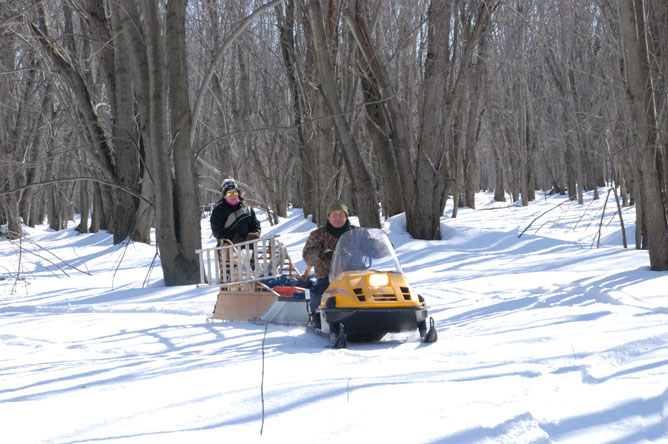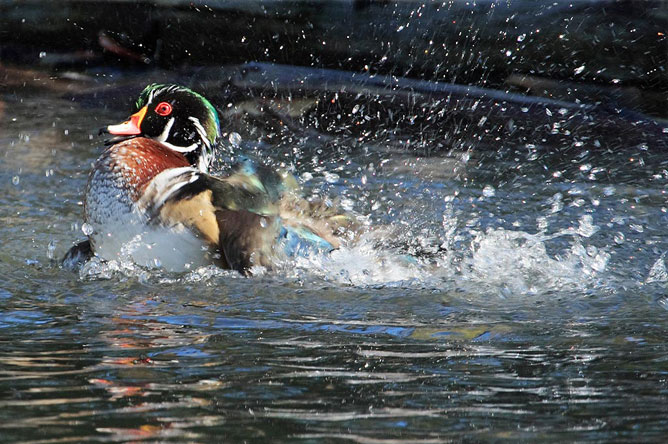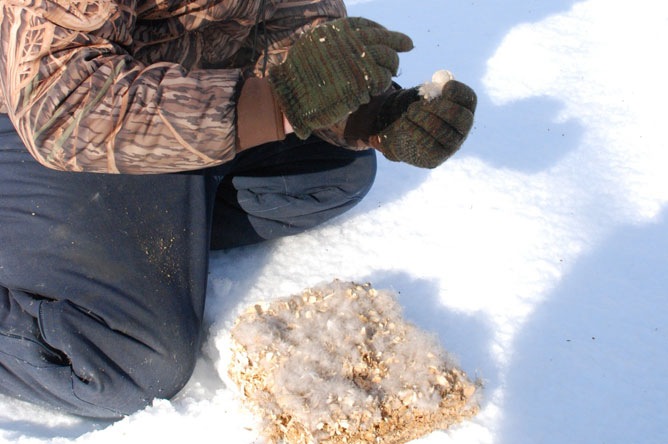The Archipelago
The Société d'aménagement de la baie Lavallière has monitored a network of Wood Duck nesting boxes in the Lake Saint-Pierre region for over 20 years. The organization also manages data for the provincial network.

For more information (in French only): Société d'aménagement de la baie Lavallière

Female Wood Ducks typically nest in a hole in tree. Unfortunately, deforestation has eliminated many suitable nest sites. To make up for this, thousands of nesting boxes have been installed throughout the province of Quebec.

The boxes are carefully examined each winter. Researchers assess how many boxes were used, and which species nested in them. The presence of down shows that a duck incubated her eggs in that nest: when the female starts to incubate, she adds down to the nest to keep the eggs warm. The duck starts incubating the clutch once she has laid her last egg, to ensure the eggs all hatch at the same time and the ducklings are of the same age.

The type of bird that nested in the box can often be identified by examining the colour of eggshell fragments. Wood Duck eggs are creamy beige, while the Common Goldeneye lays blue eggs. Hooded Merganser eggs are white, and their shell is twice as thick as that of a Wood Duck egg. The number of ducklings in a nest can be determined by counting shell membranes, which form underneath the surface of the shell. When the egg hatches, the membrane remains mostly intact, while the shell shatters into many pieces.
